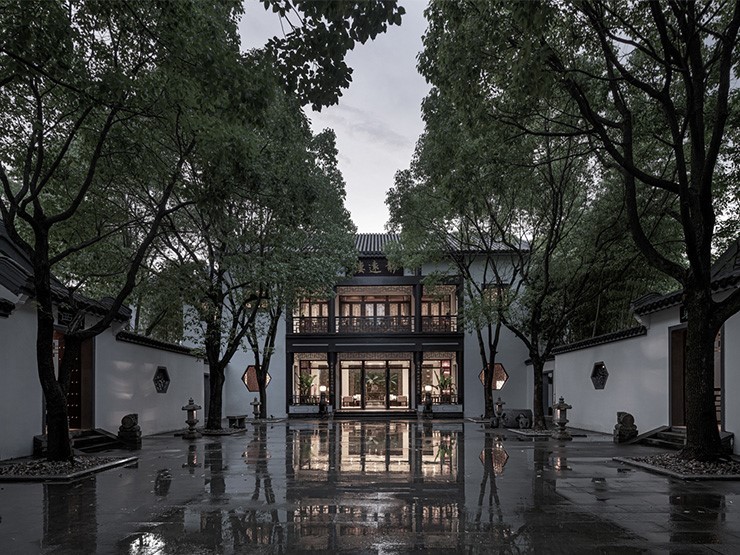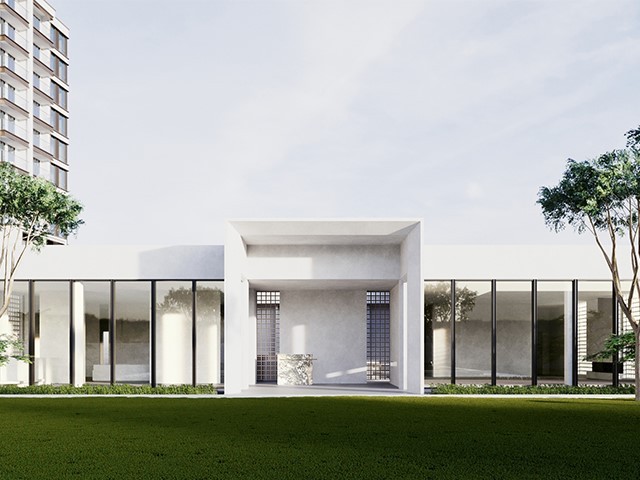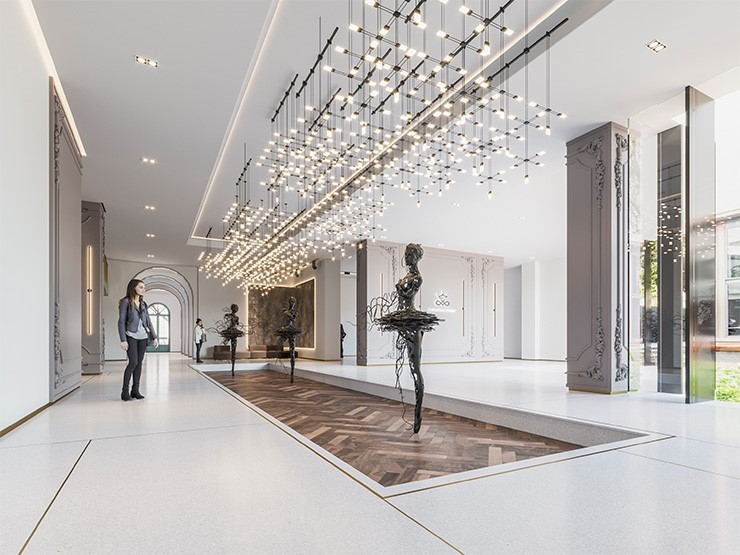Yulin · Sales Office
“光”并非描述實(shí)物,卻在應(yīng)情應(yīng)景之下,表達(dá)瞬間,獨(dú)立敘事
"Light" does not describe the real object, but expresses the moment and narrates independently under the situation.
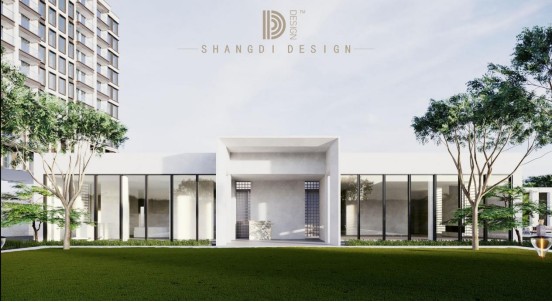
從整個(gè)建筑到室內(nèi)空間墻壁多采用白色卻打破白色沉寂,空間利用解構(gòu)主義的設(shè)計(jì)概念,用分離的觀念回憶兒時(shí)黃土窯洞的同時(shí),對當(dāng)代趨勢進(jìn)行有趣的探索。From the whole building to the walls of the interior space, white is mostly used to break the silence of white. The space uses the design concept of deconstruction to recall the loess cave dwelling in childhood with the concept of separation, and at the same time makes an interesting exploration of the contemporary trend.
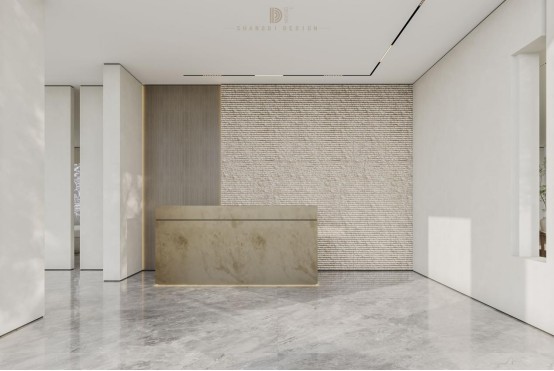
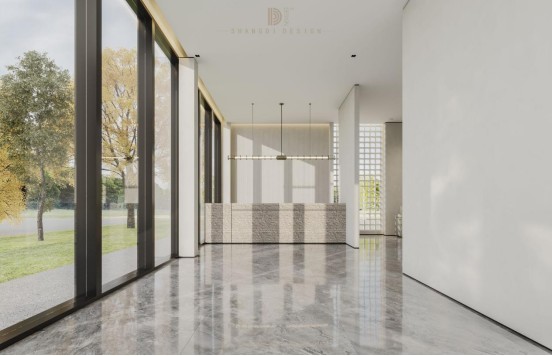
“建筑是光線下形狀正確、絕妙、神奇的游戲”光與影,總是可以構(gòu)造極具設(shè)計(jì)感和現(xiàn)代感的畫面,賦予空間獨(dú)特的藝術(shù)美感。
"Architecture is a game with correct shape, wonderful and magical under the light." Light and shadow can always construct highly designed and modern pictures, giving space unique artistic beauty.
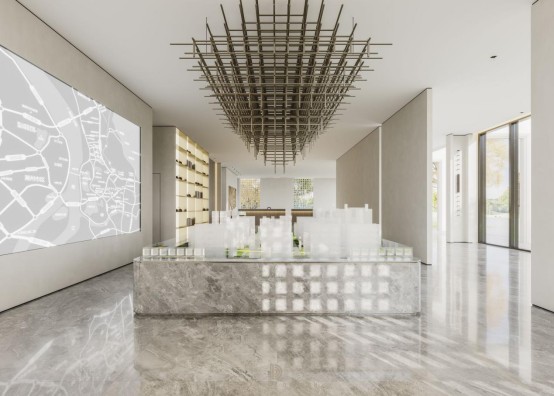
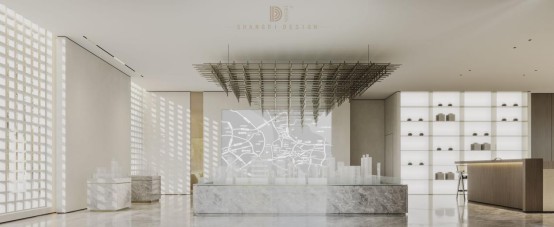
沙盤區(qū)與公共活動(dòng)區(qū)域采用單孔水泥方磚,引入自然光線和青綠林木,內(nèi)部空間與陽光相接,輕盈氣氛孕育而生。在光影交疊中反復(fù)使空間通透而嚴(yán)謹(jǐn)。
The sand table area and public activity area adopt single hole cement square brick, introduce natural light and green trees, the internal space is connected with sunlight, light atmosphere is born. Overlapping light and shadow repeatedly make the space transparent and rigorous.
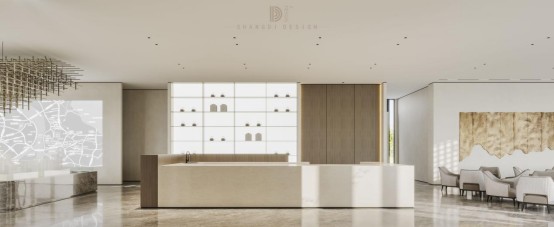
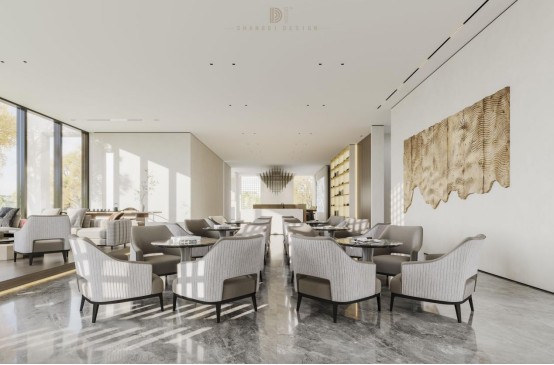
城市之喧囂與迅捷,其實(shí)不是生活的原貌,對于‘以形寫神’的發(fā)揮和具體化,似乎更適合當(dāng)代空間的形象傳達(dá):
In fact, the hustle and bustle of the city are not the original appearance of life. The play and concretization of "writing god in form" seems to be more suitable for the image communication of contemporary space:
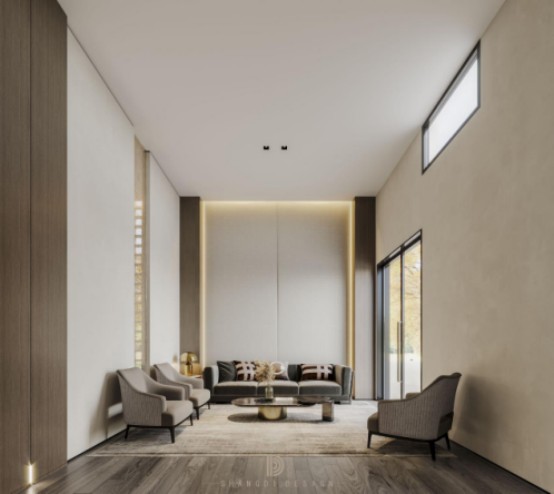
接待室墻面夾絲玻璃的運(yùn)用,使得整個(gè)空間內(nèi)外貫通將’形‘作為‘神’的外觀,并適時(shí)以‘氣’融之,從而塑造出有生命的全貌。
The application of wire glass on the wall of the reception room makes the whole space be connected inside and outside, taking "shape" as the appearance of "god", and blending it with "qi" at the right time, thus creating a full view of life.
上邸出品
項(xiàng)目名稱:榆林·售樓處
項(xiàng)目地點(diǎn):中國 ·陜西
項(xiàng)目時(shí)間:2021年
設(shè)計(jì)團(tuán)隊(duì):應(yīng)華東、祝旭男、姚靜靜
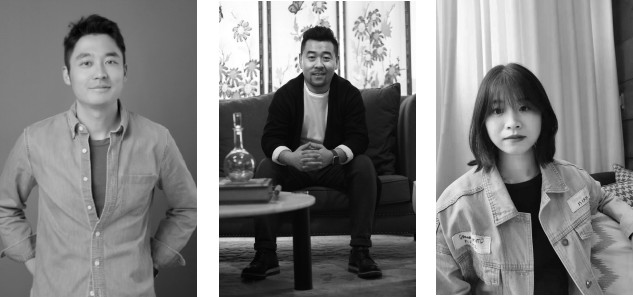
應(yīng)華東/Donny Ying 祝旭男 姚靜靜
上邸設(shè)計(jì)創(chuàng)始人-設(shè)計(jì)總監(jiān) 主創(chuàng)設(shè)計(jì)師 深化設(shè)計(jì)師
